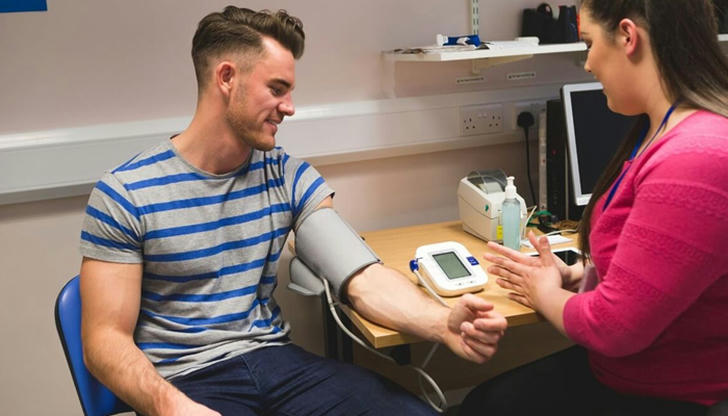The Importance of Regular Check-ups: Why Preventive Care Matters
Introduction
Regular health check-ups, also known as preventive care, are routine medical visits designed to assess your overall health and detect potential health problems before they become serious. While it’s common to visit a doctor when you’re feeling unwell, regular check-ups are equally—if not more—important. They play a crucial role in maintaining long-term health, catching diseases early, and promoting a healthier lifestyle.
In this article, we will explore what regular check-ups entail, why they matter, and how you can make the most of preventive care to improve your well-being.

What Are Regular Check-ups?
Regular check-ups are scheduled appointments with healthcare providers that focus on prevention rather than treatment. These visits typically include:
- General Physical Exams: Evaluation of vital signs, physical condition, and lifestyle factors.
- Screenings: Tests to detect diseases like diabetes, high blood pressure, or cancer at early stages.
- Vaccinations: Immunizations that protect against infectious diseases.
The recommended frequency of check-ups varies based on age, sex, medical history, and risk factors. For example, adults under 50 might see a doctor once a year, while older adults or those with chronic conditions may need more frequent visits.
Benefits of Regular Check-ups
Early Detection of Diseases
Many serious conditions, such as high blood pressure, diabetes, or certain cancers, can develop silently without obvious symptoms. Regular screenings during check-ups allow for early detection, which significantly improves treatment success and outcomes.
Monitoring Existing Health Conditions
For individuals with chronic illnesses like asthma or hypertension, regular visits help manage these conditions effectively, preventing complications and hospitalizations.
Preventing Serious Illnesses
Check-ups include vaccinations and advice on lifestyle changes—such as diet, exercise, and quitting smoking—that reduce the risk of future diseases.
Building a Trusted Relationship with Healthcare Providers
Regular visits foster open communication and trust, making it easier to discuss health concerns and receive personalized care.

Common Preventive Screenings and Tests
Different screenings are recommended depending on age, sex, and risk factors:
- Blood Pressure and Cholesterol Checks: To assess heart disease risk.
- Blood Sugar Tests: To detect diabetes or prediabetes.
- Cancer Screenings: Such as mammograms (breast cancer), Pap smears (cervical cancer), and colonoscopies (colon cancer).
- Bone Density Scans: Especially for postmenopausal women to detect osteoporosis.
- Immunizations: Including flu shots, tetanus boosters, and others.
These tests help catch problems early when they are most treatable.
How Regular Check-ups Contribute to Cost Savings
Investing in preventive care can save significant money in the long run by:
- Avoiding costly emergency room visits and hospital stays.
- Managing chronic diseases proactively, reducing complications.
- Lowering the need for expensive treatments through early intervention.
Many insurance plans cover preventive services at little or no cost to encourage their use.
Overcoming Barriers to Regular Check-ups
Despite the benefits, many people avoid routine check-ups due to:
- Fear or Anxiety: Worries about bad news or medical procedures.
- Cost Concerns: Lack of insurance or high out-of-pocket expenses.
- Time Constraints: Busy schedules and difficulty getting appointments.
To overcome these barriers:
- Find providers who communicate empathetically.
- Explore community health clinics or insurance options.
- Prioritize your health by scheduling visits in advance.
What to Expect During a Check-up
During a typical check-up, your healthcare provider may:
- Measure vital signs (blood pressure, heart rate, temperature).
- Review your medical history and lifestyle habits.
- Perform a physical examination.
- Order or perform screening tests.
- Discuss health goals and provide recommendations.
Preparing questions in advance and being honest about your habits and symptoms will improve the quality of your visit.

Taking Charge of Your Health Between Visits
Preventive care extends beyond the doctor’s office. Maintain good health by:
- Eating a balanced diet rich in fruits, vegetables, and whole grains.
- Exercising regularly.
- Managing stress through mindfulness or relaxation techniques.
- Avoiding tobacco and limiting alcohol.
- Monitoring your health metrics at home.
Seek medical attention promptly if new symptoms arise between scheduled visits.
Conclusion
Regular check-ups and preventive care are foundational to living a healthy life. By detecting problems early, managing existing conditions, and promoting healthy habits, they reduce illness, improve quality of life, and save healthcare costs. Prioritize your health by making regular check-ups a routine part of your life, and work with your healthcare provider to tailor care to your individual needs.
Remember, prevention is better than cure—your future self will thank you for it.
